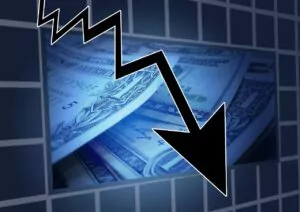Protests will intensify in the coming period amid deteriorating socio-economic indicators, especially in emerging countries, and will have repercussions on economic activity, a Coface study shows, quoted by Agerpres.
Urmărește mai jos producțiile video ale Economedia:
- articolul continuă mai jos -
“While restrictions related to the COVID-19 pandemic have temporarily halted the intensification of protests, a new wave is on the horizon. Protests, particularly in emerging countries, are expected to increase due to an unprecedented deterioration in socio-economic indicators. In 2020, Coface’s social and political risk indicator reached a record high of 51% globally and 55% in emerging countries,” say the study’s authors.
According to the analysis, these social upheavals will have repercussions on the economic activity of the affected countries, particularly on foreign trade.
Coface estimates that mass social movements have particularly strong and permanent negative effects on countries’ exports: in a year when such movements take place, exports are on average 4.2% lower than the estimated potential.
The forms of social movements, their persistence and intensity will be decisive for international trade in the years to come.
“The pandemic has temporarily halted the intensification of social movements in emerging countries. But the devastating socio-economic effects of the health crisis have raised levels of social and political risk to an all-time high. These pressures are expected to result in a new wave of movements with significant economic repercussions for the affected countries. Uncertainty related to political instability, declining confidence among economic agents, a drop in supply-side industrial activity and services, and falling consumption are expected to have a massive impact on economic activities,” said Samuel Adjutor and Ruben Nizard, economists at Coface.
According to the economists, foreign trade and exports in particular are likely to be collateral victims.
“We estimate that within three years of a social movement, exports remain up to 9% below their potential. If the movement has socio-economic demands, which is likely as a result of the pandemic, this export drag may be up to 20% lower,” argue Samuel Adjutor and Ruben Nizard.
The research also shows that the majority of social movements are taking place in emerging countries, and that the number has increased between 2017 and 2019. Experience from previous epidemics and pandemics shows that social tensions emerge on average one year after a health crisis.
In 2020, the social strain index reached an all-time high, rising from 46% to 54% globally and, for emerging countries, from 54% to 61%. This increase is explained by the unprecedented deterioration of socio-economic indicators in most of the countries analyzed. As a result of the pandemic, living standards have declined, as reflected in falling GDP per capita, their purchasing power has deteriorated, as evidenced by rising unemployment and inflation, and income and wealth inequalities have deepened.
This is compounded in some countries by growing dissatisfaction with the management of the health crisis and restrictions on civil and political freedoms, according to the study.
In 2020, 88% of emerging market countries experienced an increase in the level of risk associated with social pressures. It increased substantially in some emerging Asian countries such as Malaysia, India, Thailand or the Philippines, but also in some North African countries such as Algeria or Tunisia.
Coface economists argue that the experience of past pandemics confirms that mass social movements have persistent negative effects on economic activity.
For at least a year and a half after a mass social movement, GDP growth remains one percentage point below its previous level. For emerging countries, this indicator can be even two percentage points lower.
“These effects are translated on the supply side by a fall in industrial activity and services, and on the demand side by a fall in consumption. Consumer and business confidence is falling and uncertainty is rising. Moreover, the uncertainty associated with political instability increases transaction costs between the affected country and the rest of the world and reduces incentives to enter into new trade relationships or maintain existing ones,” the study’s authors add.
According to the research, trade flows slow down or even contract: declining industrial activity disrupts exports and falling consumption affects imports. In the year of social unrest, exports are 4.2% below potential. The gap remains substantial for three years, with exports remaining between 6.3% and 8.9% below potential. The impact on imports is more marginal, with imports recovering faster.

 Sursa foto: captură video
Sursa foto: captură video





























